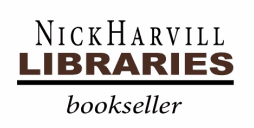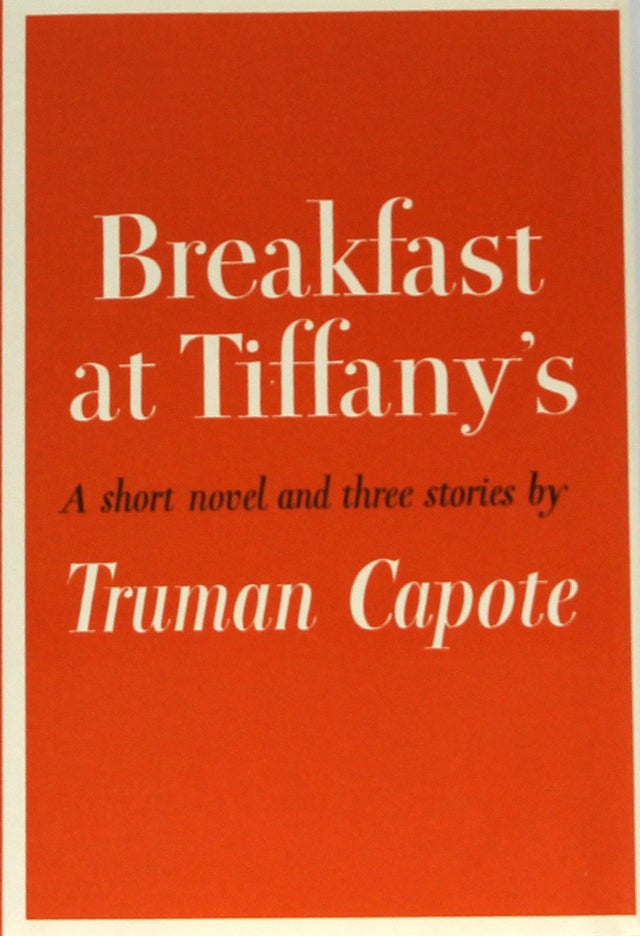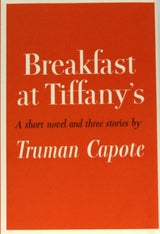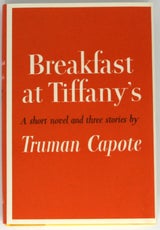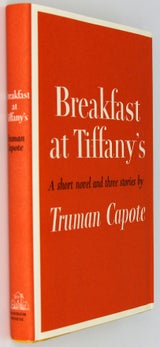- Highlights
- >
- Breakfast at Tiffanys
Breakfast at Tiffanys
Capote, Truman. Breakfast at Tiffany’s: A Short Novel and Three Stories. Later Printing. Circa 1967. Book and dust jacket are both in very good condition.
Those in Truman Capote’s set went to extreme measures to disassociate themselves from the sybaritic nihilists of “La Côte Basque, 1965.” A generation earlier, however, practically every woman in New York claimed to be the basis for the free-spirited protagonist of Breakfast at Tiffany’s, Holly Golightly. Capote himself regarded her as his favorite character, possibly because she was an idealized version of his mother, Nina. Both were teenage brides who fled the South and changed their hillbilly names to something more sophisticated. Holly was Lulamae to Nina Capote’s Lillie Mae; Holly sought her fortune by seeking to marry a Brazilian businessman; Nina landed her Latin businessman, finding if not happiness, at least financial security. It all went south when he was arrested for embezzling, and Nina overdosed on pills as bankruptcy loomed. In truth, Nina never had the aplomb or joie de vivre of Holly Golightly, but this is Truman’s love letter to an imagined mother he never had but desperately needed, and it is all the more poignant for it. Capote disliked the casting of the ethereal Audrey Hepburn (who resembled Nina Capote not at all) in the film adaptation. He preferred the earthy Marilyn Monroe (an actress whose tragic childhood would have hit perhaps too close to home). The film might not have struck the right notes for Capote, but it has become one of the most beloved films set in New York City, ensuring it a permanent position in literary and film history.
"[I]t's better to look at the sky than live there.”
--Truman Capote
